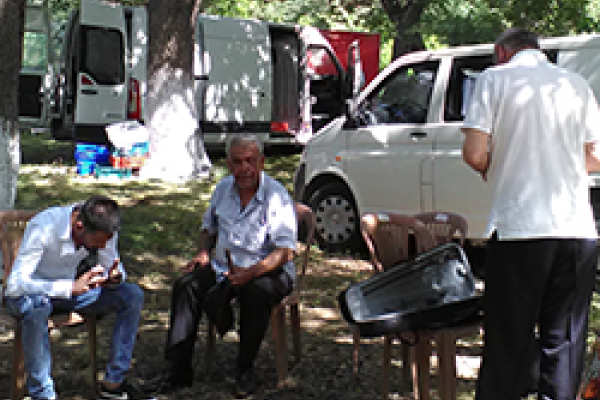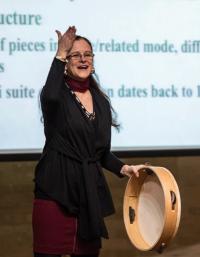
Sonia Seeman, University of Texas–Austin, presents "Music as Labor; Music as Work: 100 years of Turkish Roman Musician Narratives."
Turkish Roman musicians elevate or dismiss their work as “earning bread money” (ekmek parası kazanmak) and point to their tables (feeding their families) and roof (providing shelter). But this disarmingly simple summary belies the complexity of their training, extensive labor, and highly developed guild-like system of in-family training. Roman professional musicianship is a family trade, passed on through generations over several hundred years, and defines kin group as well as individual subjectivity. Furthermore, “Earning bread money” is a mutation for the earlier expression widespread up to the mid-20th century, “music/musicianship is the mold for making bread” (müzik ekmek teknesi). This earlier expression encapsulates the understanding that one’s profession shapes subjectivity as well as the means to survive. And the transition between these two expressions (from “shaping one’s bread” to “earning money for bread”) provides a metaphoric encapsulation of the pre- and early-modern focus on craftsmanship to a period of capitalist — and alienating — exchange of labor for cash. This talk explores these developments through the narrated lives of Turkish Roman professional musicians in their own words, documents, recordings and lived experiences, culled from 25 years of fieldwork and close family relationships, outlining key themes for a new book project.

Her recent book (pictured), Sounding Roman: Representation and Performing Identity in Western Turkey, was published by Oxford University Press in 2019.
This lecture is sponsored by the Global Arts + Humanities Discovery Theme of Migration, Mobility and Immobility. Lectures in Musicology is co-sponsored by The Ohio State University Libraries.
Lectures are held Mondays at 4 p.m. in the 18th Avenue Library, 175 W. 18th Ave. (Music/Dance Library, second floor, room 205). These events are free and open to the public.
Campus visitors, please use either the Tuttle Park Place Garage or the Ohio Union South Garage. All other garages in the vicinity of the 18th Ave. Library are closed to visitors before 4 p.m.
